Presentations in the Coastal Hall:
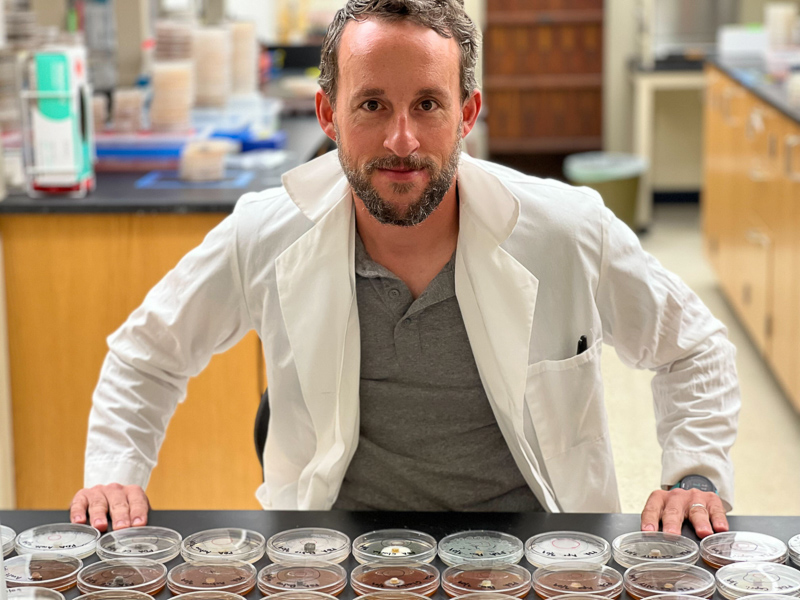
1:00 pm: The Fascinating and Sometimes Gruesome Partnerships Between Arthropods and Fungi
Dr. Matt Kasson, West Virginia University
Fungi are all around us! Yet most remain hidden in plain sight so we can’t truly appreciate all that they do for us beyond their roles in producing our beer, bread and cheese, and breaking down our compost piles. We aren’t the only ones who regularly encounter and use fungi. Various insects and millipedes have formed beneficial partnerships with some fungi, resulting in their domestication for food over millions of years. Other fungi have made food from their insect partners, developing specialized strategies to invade their hosts and manipulate their behavior to maximize spore dispersal. We’ll take a closer look at some of these fascinating and sometimes gruesome partnerships between arthropods and fungi.
About Our Speaker
Dr. Matt Kasson is a mycologist and plant pathologist and Associate Professor in the Division of Plant and Soil Sciences at West Virginia University. Dr. Kasson specializes in fungal biocontrol, fungal diseases of trees and fungus-arthropod interactions. His work on fungus-arthropod interactions, which is currently supported by NSF and the National Geographic Society, focuses on exploring and characterizing fungal biodiversity associated with ambrosia beetles and fungus-feeding millipedes. Dr. Kasson also studies the zombie cicada fungus, Massospora, which is a highly specialized behavior-modifying fungal parasite of annual and periodical cicadas. In addition to research, Dr. Kasson teaches courses on plant pathology and forest pest management. He is very active on Twitter, where he communicates about various fungus-themed topics to some 17,000 followers.
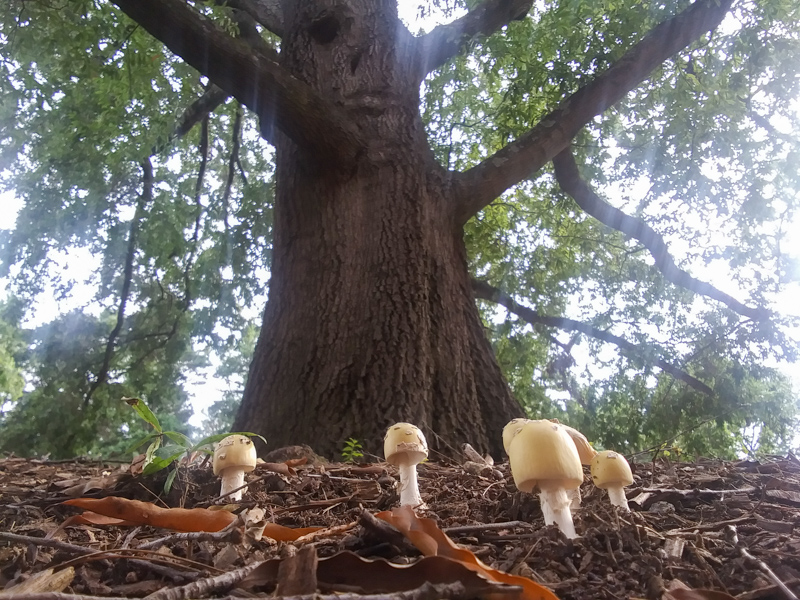
2:00 pm: Feeding Each Other: Fungi and Trees in Mycorrhizal Symbiosis
Benjamin D. Rose, NC State University Department of Crop and Soil Sciences, Garcia Lab
Mycorrhizal symbiosis is a mutually beneficial relationship between certain soil fungi and plant roots. Many trees form symbiosis and share resources with fungal partners. The fungi can provide essential nutrients and water to the roots in exchange for sugars produced by the trees. These fungi form complex underground networks in the forest, connecting trees to soil beyond the reach of the roots, and, in some cases, connecting trees to each other. This presentation will highlight the importance of mycorrhizal fungi for forest health, and the intriguing evolution of these cooperative relationships.
About Our Speaker
Ben Rose is a graduate research assistant in the Garcia Lab at NC State’s Department of Crop and Soil Sciences. His research is focused on mycorrhizal symbiosis between trees and fungi, and their dynamic interactions with the soil environment. This research is driven by a desire for deeper understanding of these complex relationships, toward more sustainable forest management practices worldwide.
Presentations in Windows on the World
11:30 am: Southern Appalachian Morels and False Morels
Andrew Methven, Eastern Illinois University
Fungi are an amazing group of diverse organisms which function in many ecological roles in nature. Come learn about the edible morels and their toxic cousins, the false morels, which occur in the Southern Appalachian Mountains.
About Our Speaker
Andrew Methven is emeritus professor of mycology and lichenology at Eastern Illinois University. He taught courses in mycology, lichenology, medical mycology and field mycology, and curated the Cryptogamic Herbarium (with more than 15,000 collections of fungi and lichens). Included among his research interests are systematics and ecology of fungi, mycogeography, the application of molecular techniques to fungal systematics and the identification and distribution of lichens in Eastern North America. Currently he is engaged in systematic studies of species complexes in Gyromitra in North America.
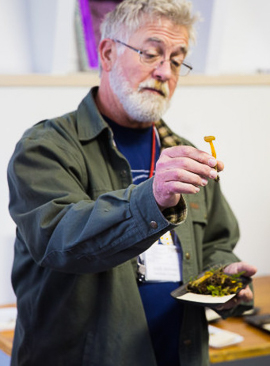
12:30 pm: The Evolution of Fermented Foods and Their Microbes
Christina Roche, Research Associate, NC Museum of Natural Sciences, Genomics and Microbiology Research Lab
As we humans have evolved our foods evolve with us. The process of fermenting foods as a way of preserving them has been used by people over thousands of years. And the microorganisms have evolved to live in the high salinity, low oxygen microenvironments to maintain food’s freshness. In this talk, we will discover what is a fermented food (or not), the various types of fermentation, and how these microorganisms are utilized and change over time.
About Our Speaker
Christina Roche is a molecular biologist and amateur fermenter. She is a researcher in the Museum’s Genomics & Microbiology Research Lab conducting metagenomic studies on the microbes in fermented foods including cheese, fermented vegetables and tea.
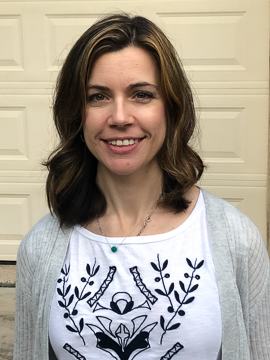
1:30 pm: On the Origin of Charles Darwin
Paul D. Brinkman, NC Museum of Natural Sciences
In this talk, visitors will be introduced to Charles Darwin. They will learn about his youth and upbringing, his unusual hobbies and his unorthodox education — all the things that prepared him for his spectacular, round-the-world voyage on HMS Beagle.
About Our Speaker
Dr. Brinkman is a historian of science who specializes on history of nineteenth and twentieth century natural sciences.
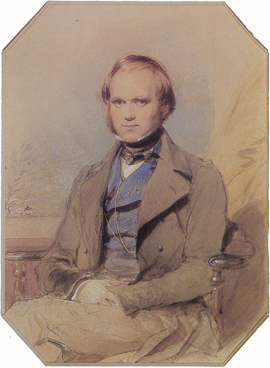
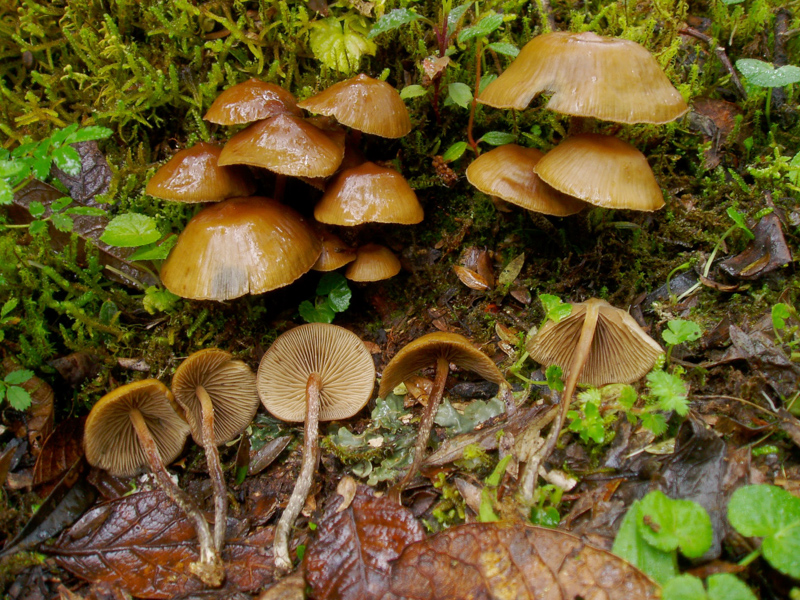
2:30 pm: Adventures with Psilocybin-Producing Mushrooms: New Insights on Their Evolution and Diversity
Bryn Dentinger, Natural History Museum of Utah & School of Biological Sciences, University of Utah
Psilocybin is the major alkaloid found in most psychoactive mushrooms and holds great promise as a therapy for a range of mental illnesses. New genomic data has provided insights into the evolution of the genetic machinery that produces this powerful medicine, including patterns of horizontal gene transfer and convergence. Our lab has generated new genomes from over 100 species of psilocybin-producing mushrooms, most from type specimens of the core psilocybin-producing genus Psilocybe. Together with new data on the chemical composition of Psilocybe and the stability of metabolites in preserved specimens, I will present an overview of Psilocybe diversity, phylogeny, biogeography, chemistry, and evolution of the genes responsible for psilocybin biosynthesis.
About Our Speaker
Bryn grew up in Duluth, MN where he developed a passion for mushroom foraging as a teenager. He received his B.A. from Macalester College where he studied the neuropharmacology of a psychoactive mint (Salvia divinorum) for his honors thesis. He received his Ph.D. from the University of Minnesota in 2007 where he studied the systematics and evolution of porcini and clavarioid mushrooms. After a postdoc in Toronto and Eugene, OR, Bryn took a position at the Royal Botanic Gardens, Kew in London, UK where he became Head of Mycology. In 2016, Bryn relocated to Utah and currently holds a joint position as Curator of Mycology at the Natural History Museum of Utah and Associate Professor in the School of Biological Sciences at the University of Utah.
This talk will be livestreamed on the Museum’s YouTube channel:
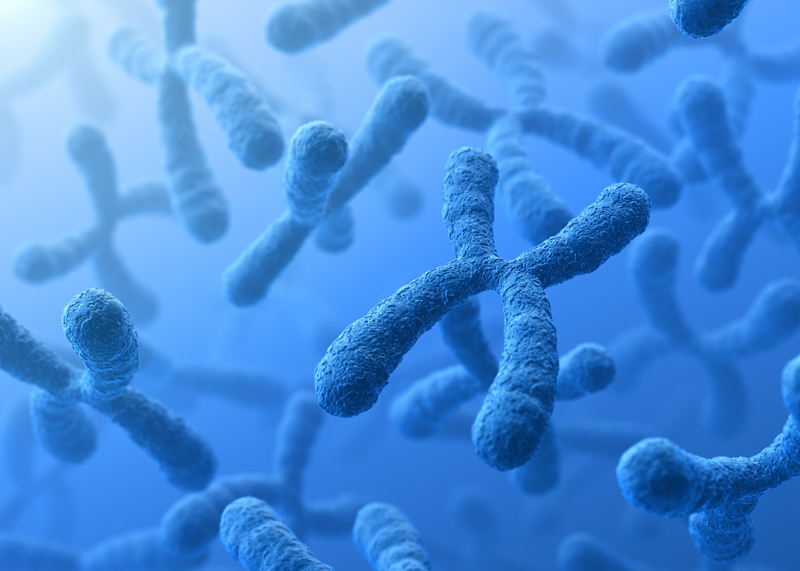 3:30 pm: DNA: The Machinery of Life
3:30 pm: DNA: The Machinery of Life
Ron Monti, The Osher Lifelong Learning Institute at NC State University
Our cells utilize an incredible array of molecular machines to replicate and edit DNA, synthesize proteins and perform many other complex and astounding feats. In this presentation, we’ll take a look a look at some of these machines and how they maintain life as we know it.
Our Speaker:
Ron is a science instructor for the Osher Lifelong Learning Institute at NC State University, a volunteer educator and exhibitor at the NC Museum of Natural Sciences, and an outreach speaker for the Raleigh Astronomy Club.

